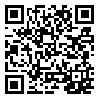Mon, Nov 3, 2025
[Archive]
Volume 15, Issue 4 (10-2025)
J Adv Biomed Sci. 2025, 15(4): 361-371 |
Back to browse issues page
Download citation:
BibTeX | RIS | EndNote | Medlars | ProCite | Reference Manager | RefWorks
Send citation to:



BibTeX | RIS | EndNote | Medlars | ProCite | Reference Manager | RefWorks
Send citation to:
Herfedoost N, Tabatabaei S M. The Relationship between the Implicit Self-Esteem, the Behavioral Activation and Inhibition Systems (BAS/BIS), and Narcissistic Traits in Students. J Adv Biomed Sci. 2025; 15 (4) :361-371
URL: http://jabs.fums.ac.ir/article-1-3170-en.html
URL: http://jabs.fums.ac.ir/article-1-3170-en.html
1- Department of Clinical Psychology, Tabriz Branch of Medical Sciences, Islamic Azad University, Tabriz, Iran
2- Department of Medical Physiology, Tabriz Branch of Medical Sciences, Islamic Azad University, Tabriz, Iran ,smt1351@gmail.com
2- Department of Medical Physiology, Tabriz Branch of Medical Sciences, Islamic Azad University, Tabriz, Iran ,
Abstract: (97 Views)
Background & Objectives: Narcissistic personality traits are shaped by multiple cognitive and behavioral processes. This study investigated the extent to which implicit self-esteem and the behavioral activation and inhibition systems (BAS/BIS) predict narcissistic personality traits in students.
Materials & Methods: This descriptive correlational study included 295 students who were selected by simple random sampling. Participants completed the Dirty Dozen Narcissistic Personality Questionnaire, the Gray-Wilson Personality Questionnaire, and the Implicit Association Test for self-esteem. Relationships among variables were examined using correlation and multiple regression analyses to determine the variance in narcissistic traits.
Results: Results revealed significant correlations between narcissistic personality traits and implicit self-esteem (r = −0.48), the behavioral inhibition system (r = −0.53), and the behavioral activation system (r = 0.82). Multiple regression analysis indicated that implicit self-esteem and the behavioral systems together accounted for 74% of the variance in narcissistic traits. Although this R² is large, it is atypical in behavioral research and therefore warrants replication to rule out overfitting.
Conclusion: These findings underscore the roles of implicit self-esteem and reinforcement sensitivity in shaping narcissistic traits and offer guidance for psychologists and counselors developing culturally informed preventive and therapeutic interventions for students.
Materials & Methods: This descriptive correlational study included 295 students who were selected by simple random sampling. Participants completed the Dirty Dozen Narcissistic Personality Questionnaire, the Gray-Wilson Personality Questionnaire, and the Implicit Association Test for self-esteem. Relationships among variables were examined using correlation and multiple regression analyses to determine the variance in narcissistic traits.
Results: Results revealed significant correlations between narcissistic personality traits and implicit self-esteem (r = −0.48), the behavioral inhibition system (r = −0.53), and the behavioral activation system (r = 0.82). Multiple regression analysis indicated that implicit self-esteem and the behavioral systems together accounted for 74% of the variance in narcissistic traits. Although this R² is large, it is atypical in behavioral research and therefore warrants replication to rule out overfitting.
Conclusion: These findings underscore the roles of implicit self-esteem and reinforcement sensitivity in shaping narcissistic traits and offer guidance for psychologists and counselors developing culturally informed preventive and therapeutic interventions for students.
Keywords: Narcissistic traits, implicit self-esteem, behavioral activation system, behavioral inhibition system, students
Type of Study: Research |
Subject:
Cognitive Neuroscience
Received: 2025/08/16 | Revised: 2025/11/1 | Accepted: 2025/10/5 | Published: 2025/11/1
Received: 2025/08/16 | Revised: 2025/11/1 | Accepted: 2025/10/5 | Published: 2025/11/1
Send email to the article author
| Rights and permissions | |
 |
This work is licensed under a Creative Commons Attribution-NonCommercial 4.0 International License. |

This work is licensed under a Creative Commons — Attribution-NonCommercial 4.0 International (CC BY-NC 4.0)




